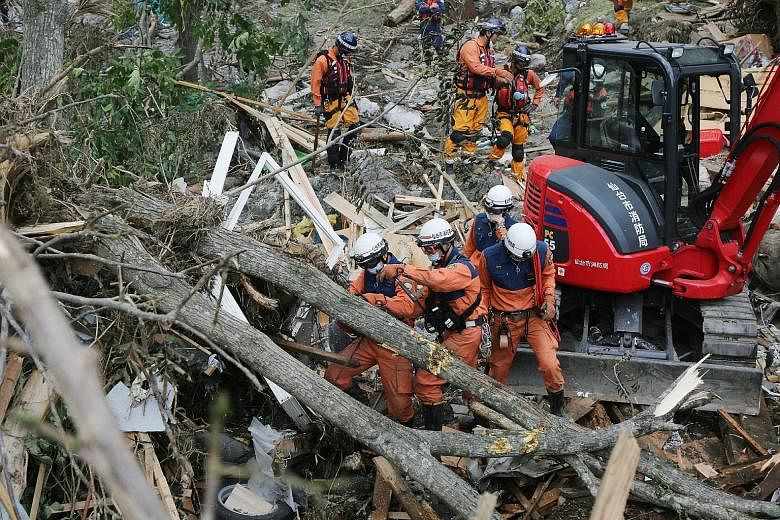PARIS • China, Taiwan, Japan and the Korean peninsula will experience more violent typhoons because of climate change, a study has found, presenting evidence that a recent rise in storm intensity was caused by ocean warming.
Scientists have struggled to identify changes in the intensity and frequency of typhoons over the north-western Pacific Ocean - never mind trying to pinpoint a role for global warming.
Contradictory trends emerged in records from the Joint Typhoon Warming Centre and the Japan Meteorological Agency - the two most widely used data sets in typhoon research, according to scientists Wei Mei and Shang-Ping Xie, authors of the US-based study. They have now corrected the data for differences in methodology and discovered a single, clear trend.
"Over the past 37 years, typhoons that strike East and South-east Asia have intensified by 12-15 per cent," they wrote in the journal Nature Geoscience, released on Monday.
And the data showed that this intensification was linked to ocean surface warming - possibly caused by climate change, although this has yet to be proven.
Projections for ocean warming if humans continued to emit planet- harming greenhouse gases, said the scientists, "suggest that typhoons striking eastern mainland China, Taiwan, Korea and Japan will intensify further".
"Given disproportionate damage by intense typhoons, this represents a heightened threat to people and properties in the region," they said.
The populations in these coastal areas were growing fast, the scientists pointed out, and sea levels were rising.
The world's nations concluded a pact in Paris last December to halt the march of climate change, which threatens stronger storms, longer droughts and land-gobbling sea level rises. This would be achieved by curbing the emission of heat-trapping gases from the use of fossil fuels.
Another study, also released on Monday, suggested that global warming was making the oceans sicker than ever, spreading disease among animals and humans and threatening global food security.
The findings, based on peer-reviewed research, were compiled by 80 scientists from 12 countries, experts said at the International Union for Conservation of Nature (IUCN) World Conservation Congress in Hawaii.
"We all know that the oceans sustain this planet. We all know that the oceans provide every second breath we take," IUCN director- general Inger Andersen told reporters at the meeting, which has drawn 9,000 leaders and environmentalists to Honolulu. "And yet we are making the oceans sick."
The report, Explaining Ocean Warming, was the "most comprehensive, most systematic study we have ever undertaken on the consequence of this warming on the ocean", co-lead author Dan Laffoley said.
AGENCE FRANCE-PRESSE

